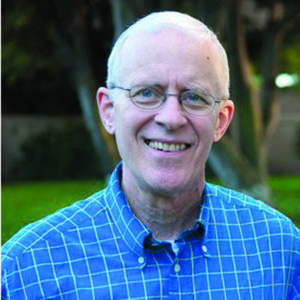
You know the story. David, the beloved king, stayed in Jerusalem when he should have been leading his soldiers. He committed adultery with the wife of Uriah, one of his outstanding soldiers. When David learned she was pregnant, he tried to cover his tracks by having Uriah killed on the battlefield. That was bad. Real bad.
For nine months, David lived with constant guilt as he watched Bathsheba’s belly grow larger, until the baby was born. But God hadn’t forgotten David’s sin. As a result, the child became sick and died. David was made aware that the consequences of sin far outweighed its temporary pleasures. It wasn’t until the prophet Nathan confronted David that the king could see how far he had drifted from God. The account of his return to God is recorded in Psalm 51. I’ll take a closer look at what repentance looked like in David’s life.
“Have mercy on me, O God, according to Your unfailing love; according to Your great compassion blot out my transgressions. Wash away all my iniquity and cleanse me from my sin.” (Psalm 51:1–2)
- David knew the character of God, that He was full of love and compassion. Therefore, he asked Him to show mercy and to wipe his slate clean from sin.
- He saw his sin as a stain that only God could wash away.
“For I know my transgressions, and my sin is always before me.” (Psalm 51:3)
- The fact that David’s sin was always before him meant that he relived his sin over and over. That’s what guilt will do to you. You ask yourself, “How could I have been so stupid, so out of control? What was I thinking?” The New Living Translation says that David’s guilt was haunting him day and night. There may be things in your past that haunt you, too. Jesus can set you free from them if you call on Him to be your Savior and Lord.
- David knew that his actions toward Bathsheba and Uriah were sinful. He took full responsibility for his rebellion and didn’t try to justify himself. Repentance is being upfront with God, agreeing with Him, and intending to not repeat it.
“Against You, You only, have I sinned and done what is evil in Your sight, so that You are proved right when You speak and justified when You judge. Surely I was sinful at birth, sinful from the time my mother conceived me.” (Psalm 51:4–5)
- When David said that he sinned only against God, he wasn’t saying that he hadn’t done wrong to Bathsheba or Uriah or anyone else. But it was God who set the standard of right and wrong, and it was against His standard that David chose a different path.
- David was not trying to justify himself, and say, “I’m just human. Besides, I have a propensity to sin, and am attracted to sinful things. It’s not fair that You judge me.” Instead, David acknowledged that he was in the wrong and that God was in the right. Only Jesus was born without a sin nature. He never sinned, so He was qualified to be our Substitute and die in our place for our sin’s penalty.
“Cleanse me with hyssop, and I will be clean; wash me, and I will be whiter than snow. Create in me a pure heart, O God, and renew a steadfast spirit within me.” (Psalm 51:7, 10)
- Hyssop was dipped into blood and used like a paintbrush to spread it along the top and on both sides of the doorframe at the first Passover in Egypt. Forgiveness required blood to be shed by innocent animals in David’s time, but ultimately by the Messiah’s blood.
- Not only did David need God to cover his sin like snow, but he needed a complete washing. Sin is like mud that clings to anything it touches. Only God’s merciful forgiveness can cleanse us.
“You do not delight in sacrifice, or I would bring it; You do not take pleasure in burnt offerings. The sacrifices of God are a broken spirit; a broken and contrite heart, O God, You will not despise.” (Psalm 51:16–17)
- Though God instituted animal sacrifice, unless one’s heart is broken, it doesn’t matter how many animals are sacrificed. Forgiveness is not obtained by our own efforts, but by admitting our sins to God, and He knows the state of a person’s heart.
In summary, forgiveness is possible because God is kind. But He’s not fooled. He requires the person to have a broken and contrite heart. Now that Jesus has shed His blood, anyone can be forgiven and their slate made whiter than snow. Anyone who comes to Jesus can be confident that He has forgiven them. No one is too bad.
No Comments
Leave a comment Cancel